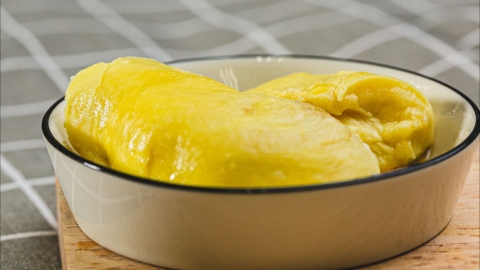Can I eat longan after eating durian?
Generally speaking, it is okay to eat rambutan after eating durian, but the quantity should be controlled, and you must ensure there is no adverse physical reaction.

If no discomfort such as abdominal bloating or heatiness occurs after consuming durian and your gastrointestinal function is good, moderate consumption of rambutan generally won't cause adverse effects. Durian is rich in protein and sugar, while rambutan contains vitamins and minerals. Their nutritional components differ, and when consumed in appropriate combination, they can provide various nutrients to the body. Additionally, the sweet and sour taste of rambutan may help alleviate the greasiness of durian, enhancing the overall eating experience.
If excessive durian has been consumed and symptoms such as bloating or indigestion have appeared, eating rambutan afterward may further burden the gastrointestinal system. Both durian and rambutan contain certain amounts of sugar, and excessive consumption may lead to elevated blood sugar levels. This is especially true for individuals with weak gastrointestinal function or abnormal blood sugar levels, who are more likely to experience physical discomfort, affecting digestive function or blood sugar stability due to the combined effects of both fruits.
After eating durian, when consuming rambutan, it is important to control the total amount of both fruits to avoid excessive intake of high-sugar, high-calorie foods at one time. After consumption, observe your body's reaction. If gastrointestinal discomfort or blood sugar fluctuations occur, reduce the amount consumed or stop eating them altogether.





